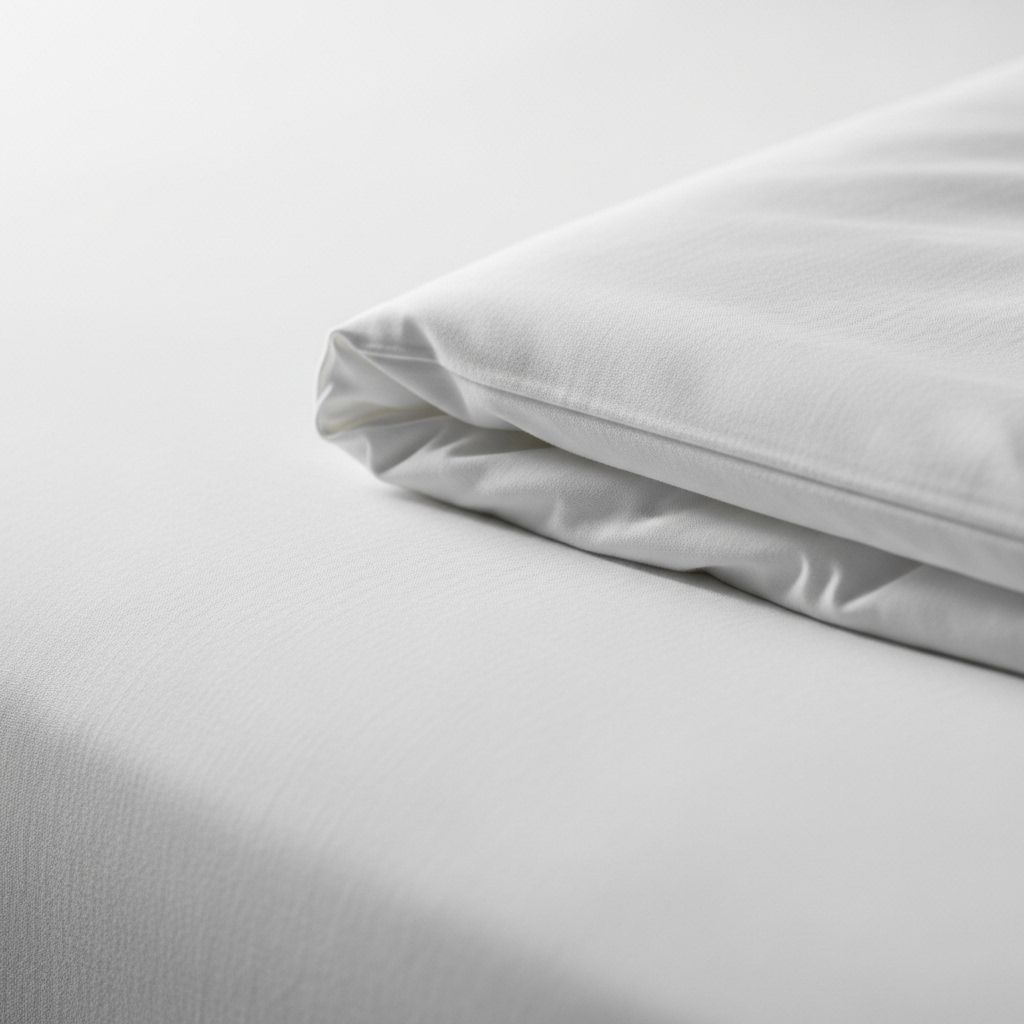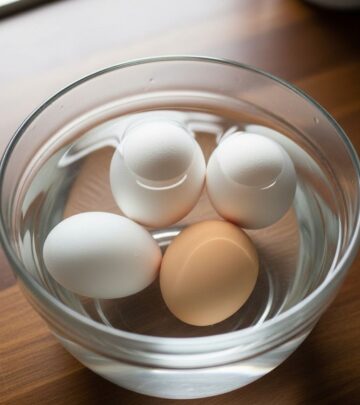How Often Should You Wash Your Sheets? Expert Tips for Clean Bedding
Rotating fresh linens preserves fabric quality and creates a more hygienic sleep space.

Freshly washed sheets are more than just a pleasant luxury—they are essential for comfort, sleep quality, and a healthy bedroom environment. This comprehensive guide, built on expert advice and research, will show you how often you should wash your sheets, why frequent cleaning matters, and the best ways to keep your bedding in top shape.
Why Regularly Washing Sheets Is Important
Bed sheets accumulate far more than meets the eye. Since you spend about a third of your life sleeping, it’s crucial to understand what collects in your sheets and how it can affect your well-being:
- Dust mites – microscopic creatures that thrive where dead skin cells and moisture accumulate.
- Body oils and sweat – naturally produced every night, absorbed by bedding.
- Bacteria and allergens – from you, pets, or the environment.
- Dead skin cells – shed every night and a food source for dust mites.
- Lingering food crumbs – if you snack in bed.
If neglected, this combination can lead to acne, allergic reactions, respiratory issues, and skin irritation, especially for those with allergies, asthma, or sensitive skin. Maintaining clean sheets improves sleep hygiene and preserves the quality and durability of your bedding.
How Often Should You Wash Your Sheets?
The golden rule according to medical experts is:
- Once per week – Ideal for most people to maintain hygiene and comfort.
- Every 2 weeks – Acceptable for those who travel often or do not sleep in their bed nightly.
- Every 3–4 days – Recommended if you:
- Have allergies, asthma, or sensitive skin
- Sweat excessively, especially during hot months
- Allow pets in bed
- Are ill or have a compromised immune system
Alternating between at least two sets of sheets makes this schedule easier to manage. Sticking to a routine helps you enjoy the feel of fresh bedding more often, and delays fabric wear by rotating sets.
How Often Should You Wash Other Bedding?
| Bedding Item | Recommended Wash Frequency |
|---|---|
| Fitted & Flat Sheets, Pillowcases | Weekly (or every 1–2 weeks for low use) |
| Duvet Cover | Every 2–4 weeks (more often if used without a top sheet) |
| Duvet Insert & Pillows | Every 6 months |
| Comforters/Blankets | Every 2–3 months for blankets, 6 months for comforters |
| Mattress Pads | Every 2–3 months |
| Pillow Protectors | Every 2–4 weeks |
Always check specific care labels, especially for delicate, luxury, or specialty materials. Some wools or silks may require dry cleaning or specialty products.
Factors That Change How Often to Wash Sheets
Your lifestyle, habits, and specific health needs can determine whether you should wash your sheets more or less often:
- Allergies & Asthma: Dust mites and residues can trigger symptoms. Weekly or more frequent washing is advised.
- Sweating & Hot Weather: Increased perspiration, especially in summer or by those with night sweats, makes more frequent washing beneficial.
- Pets in Bed: If your furry companions share your bed, fur, dander, and outdoor contaminants build up faster.
- Illness or Immune Issues: If you are sick, have skin infections, or have a weakened immune system, launder sheets at least every few days.
- Young Children: Babies and toddlers may require more frequent changes due to spills or accidents.
- Personal Preference: Some simply love the feeling of ultra-fresh sheets and opt to wash them more than once a week. There is no harm in extra laundering if you follow proper care instructions.
Best Practices: How to Properly Wash Bed Sheets
Regular cleaning is only half the story—proper washing techniques will help your sheets last longer and feel softer, wash after wash. Here’s a step-by-step guide for a thorough, fabric-friendly clean:
- Check the Care Label: Always start here for fabric-specific instructions, especially regarding water temperature, recommended cycle type, or prohibited products.
- Sort Sheets Separately: Sheets are bulky and can easily get twisted or tangled. Wash them alone or with similarly lightweight, color-matched items.
- Pretreat Stains: Use a mild detergent or spot cleaner and let it sit for a few minutes on any obvious stains before loading your sheets into the washer.
- Pick the Right Water Temperature:
- Warm water – Generally recommended as it effectively cleans without excessive wear.
- Hot water – Best for white or heavily soiled sheets; kills bacteria and dust mites.
- Cold water – Can prolong the life of colors and delicate fabrics, though it may be less effective for removing certain stains or allergens.
- Gentle Cycle: Use the gentle or normal setting to reduce friction and fabric stress, unless your bedding’s care label says otherwise.
- Mild Detergent: Avoid harsh chemicals and opt for a gentle, fragrance-free detergent, especially with sensitive skin or luxury fabrics.
- Skip the Bleach: Unless targeting tough, white-only stains, bleach can break down fibers and reduce sheet life.
- Dry Completely: Tumble dry on low heat or line dry, removing sheets promptly to minimize wrinkling. Make sure sheets are fully dry before folding or storing to prevent mold or mildew growth.
5 Pro Tips for Maximizing Bedding Freshness and Longevity
- Rotate sheet sets: Using two or three sets in rotation minimizes wear and ensures fresh sheets are always available.
- Shake before drying: Give freshly washed sheets a good shake before putting them in the dryer. This helps reduce wrinkles.
- Dry outside occasionally: Line drying in sunlight can add a fresh scent and help naturally disinfect.
- Store smartly: Store fully dry sheets in a cool, dry place. Consider keeping sachets of lavender or cedar in your linen closet to deter pests and add a light, calming scent.
- Don’t overload the washer: Large loads can prevent sheets from rinsing and spinning fully, leaving residues and increasing wear.
How to Handle Specialty and Luxury Bedding Materials
Delicate fabrics like linen, silk, bamboo, and TENCEL™ Lyocell require extra attention:
- Always use the care label as your first reference for temperature, detergent, and drying methods.
- Wash in cold or lukewarm water with a gentle detergent.
- Avoid fabric softeners which can coat fibers and diminish absorbency in bamboo or microfiber sheets.
- Air dry or use the lowest possible heat setting.
For frequent questions on luxury or organic materials, consult with the brand or manufacturer for the best practices. Some specialty fabrics may require handwashing or professional cleaning to avoid shrinking or damage.
Common Myths About Washing Sheets
- “You only need to wash sheets if they look dirty.” – False. Even clean-looking sheets collect dead skin, dust mites, and oils.
- “Washing sheets too often wears them out.” – Only if you use harsh detergents or very high heat. Proper washing methods actually extend their life.
- “Only people with allergies need to wash weekly.” – Weekly washing is hygienic for everyone, and even more frequent laundering is needed for some.
Frequently Asked Questions (FAQs)
Q: Is it OK to wash sheets just once a month?
A: Once a month is not recommended for sheets you use daily. Germs, dust mites, and skin cells build up quickly. If you rarely use a set (guest beds or vacation homes), monthly washing might be sufficient, but for regular use, weekly is best.
Q: What if I have allergies or sensitive skin?
A: Increase frequency to every three or four days to reduce exposure to allergens, dust mites, and residues. Always use a mild, fragrance-free detergent.
Q: How often should I wash other bedding (duvets, pillow protectors)?
A: Duvet covers every 2–4 weeks, inserts and comforters every 6 months, mattress pads every 2–3 months, and pillow protectors every few weeks.
Q: Can I wash sheets and towels together?
A: It’s better to wash sheets separately from towels, as towels are often heavier and more abrasive, which can increase wear and may hinder proper rinsing and drying.
Q: What’s the best way to dry sheets?
A: Tumble dry on low or medium heat, remove promptly to minimize wrinkles, and line dry occasionally for natural freshness if the weather allows.
Q: How can I keep my sheets smelling fresh longer?
A: Make sure sheets are fully dry before storing, use natural drawer sachets, rotate sets, and avoid eating or drinking in bed to reduce spills and crumbs.
Conclusion: Healthy Sheets, Healthier You
Frequent, proper laundering of your bed sheets is more than routine housework—it’s a key part of a cleaner and healthier lifestyle. Find a wash schedule that suits your unique needs, stay diligent about care, and enjoy the unmistakable comfort of crisp, inviting bedding all year round.
References
Read full bio of medha deb










